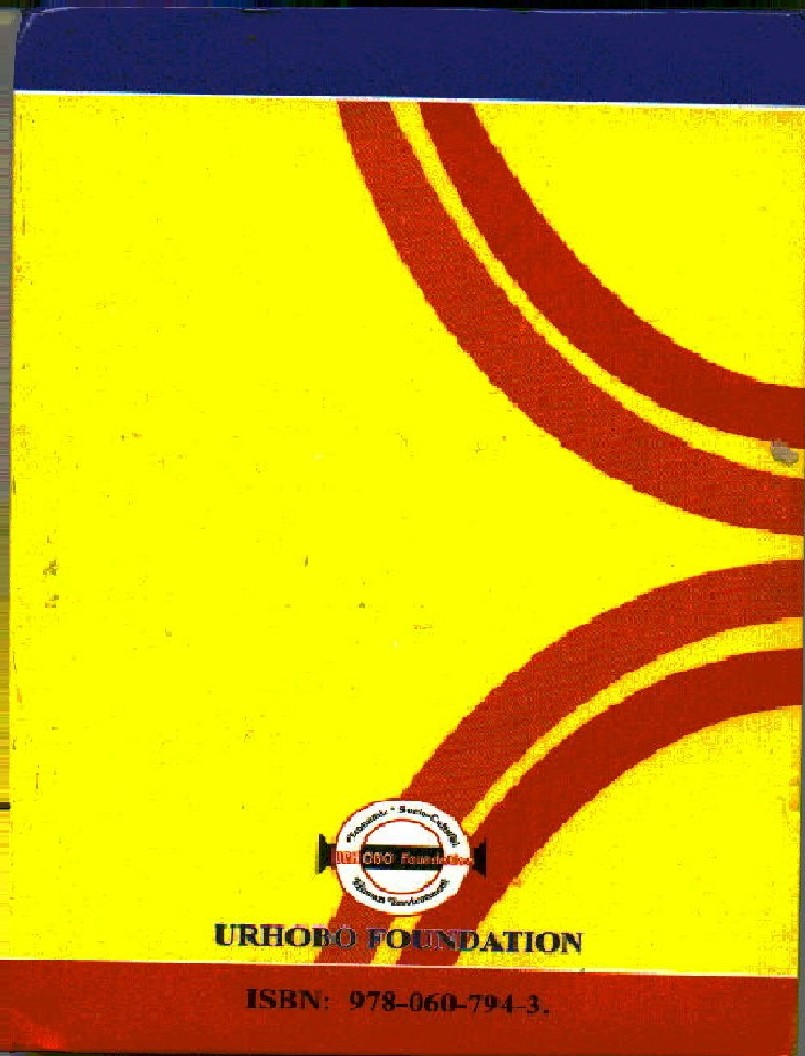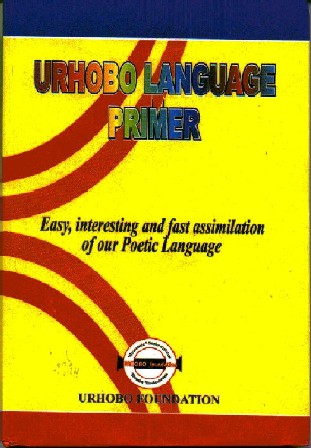

URHOBO LANGUAGE PRIMER
(Text and Audio)
By
Urhobo Foundation
4, Akitoye Street
Off Herbert Macaulay Street
Yaba, Lagos, Nigeria
First Published: October, 2003


Back and Front Covers
Note: Urhobo Foundation, Lagos, is currently discussing how best to have this book available for sale in North America and the United Kingdom. An announcement will be made on the Foundation's decision at a later date.
URHOBO LANGUAGE PRIMER
INTRODUCTION
This primer is targeted at Urhobo adults and children in Diaspora who for one reason or the other lost the opportunity to learn their own language in the past. It is also designed to be used by non-Urhobos who desire to communicate while working or living in Urhobo land as well as Urhobos with some background of the language but may have lost it owing to diminished use or lack of contact with other Urhobo speakers. This book is designed to be enjoyed like a song.
The authors employed the new method of “assimilation” in the gradual infusion of the essence of the Urhobo Language to the reader. The presentation of the material is mainly in spoken form using apostrophe to make compound words in the spoken format as against the classical and literary forms of written Urhobo. The fusion of the written and spoken forms for the beginner is envisaged to make reading, writing and understanding easier. We apologise to the purists for any short cut we have taken. We have also avoided using difficult expressions and excessive detail since this can only lead to frustration and loss of a probable good student.
The Urhobo has been written side by side with English interpretations and the work is accompanied by an audio cassette to aid beginners in pronunciation and easy listening at home or on the road.
The vocabulary used in the book has been carefully selected to include words that are used daily in a typical Urhobo setting. The sentences are written in simple forms to gently expand the learners’ vocabulary while some proverbs and idioms have been included because no Urhobo can be spoken in public without the inclusion of these beautiful sayings. The beginner is encouraged to collect his own dossier of proverbs as his knowledge of Urhobo grows.
It is expected that any reader who finishes this simple book will become familiar with the spoken form of the language. It is however intended only as the beginning and a challenge to those who can come through the twenty-two chapters to forge ahead into the great richness of the language.
“Gba y’ eghwere.” (Bon voyage.)
Arc. O. C. Majoroh
Editor